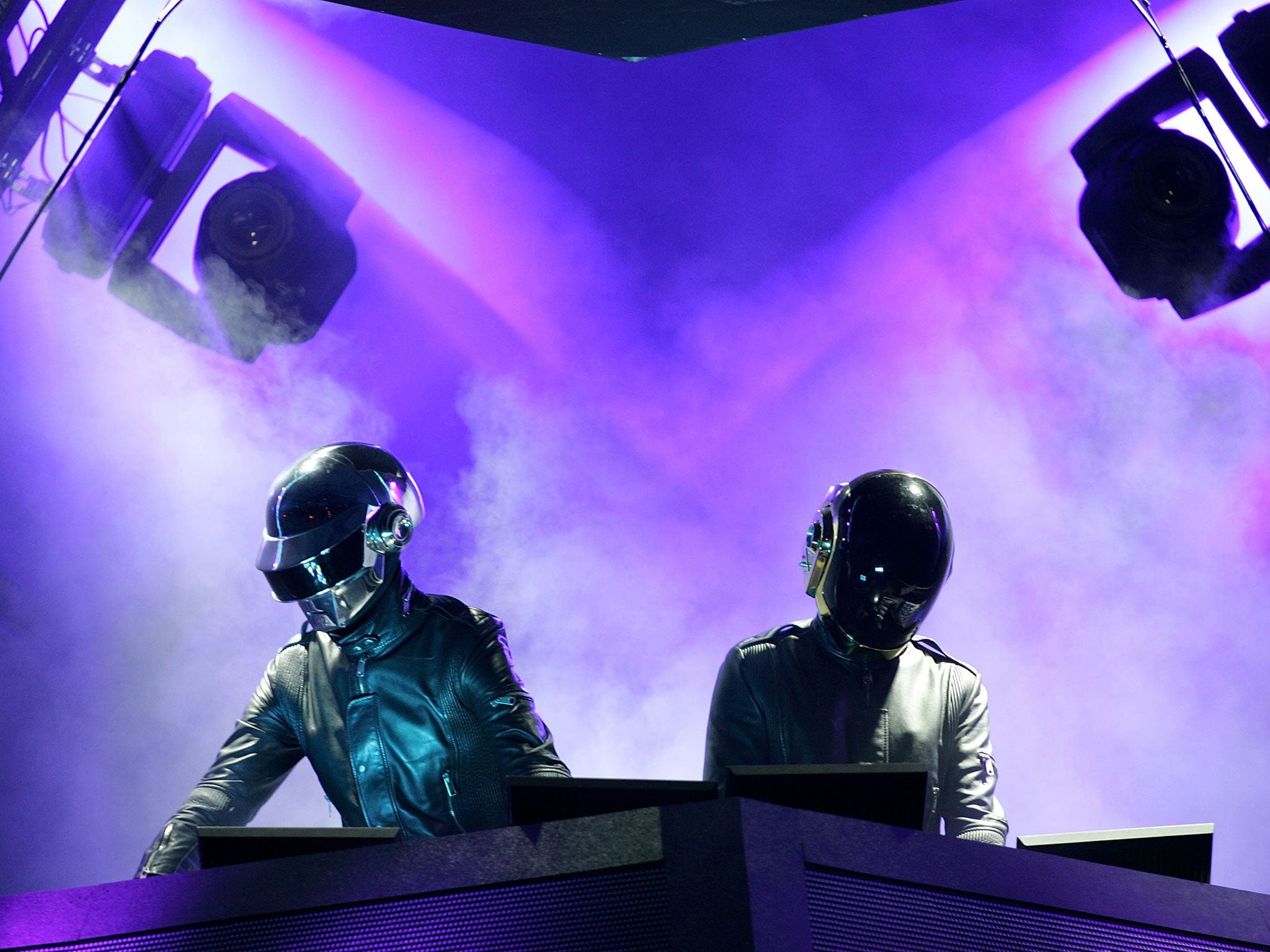Human After All: How Daft Punk's most maligned album warned us about the perils of progress
As Daft Punk's third album turns 15, Roisin O'Connor looks at the ideas the French duo explored – from suspicion of techology to a rejection of traditional ideas of 'progress' – and how those ideas feel more relevant than ever


Fifteen years ago, tracks from Daft Punk’s third album, Human After All, leaked online. Many fans assumed it was a joke. Surely this wasn’t the Daft Punk who had released Discovery five years earlier? These new songs were dreary, and rock-influenced. Where was the disco? Where was the fun?
Human After All is not an album designed to make the listener feel good. It’s a dark album, inspired by the paranoid and oppressive world of George Orwell’s 1984. Compared to the youthful, disco-influenced spirit of Discovery, the tone here is dark, suspicious and deeply cynical of everything, from television to technology the duo were using themselves. Human After All was recorded over 10 days, with two guitarists assisting them, and worked with two drum machines, a vocoder, and one eight-track machine. Random Access Memories, released in 2013, took five years – three of which involved working with collaborators including singers, sound engineers and entire orchestras.
“Our first two albums are really happy, they make you feel good and make you want to dance,” Thomas Bangalter told Anthem magazine in 2007. “It’s a natural high. On the opposing side, both Human After All and Electroma [the duo’s 2006 science fiction film] are extremely tormented and sad and terrifying looks at technology, yet there can be some beauty and emoting from it.”
When we talk about technology, the term “progress” tends to crop up a lot. On Human After All, Daft Punk adhere to the ideas of the late French theorist Paul Virilio, referred to by some as the “theorist of disaster” and who spoke to Vice in 2010 about his concept of “integral accidents”.
“Inventing a plane is not only inventing the crash but also inventing the breakdown,” he said. “A jet engine is an amazing thing, but it’s also sensitive to birds, to volcanic ash… So you go from the plane that can go really fast to the plane that can’t fly at all.
“Whether it’s because of terrorism and being scared, or because of the volcano and it being too risky, or something new tomorrow, you can’t innovate without creating some damage. It’s so obvious that being obliged to repeat it shows the extent to which we are alienated by the propaganda of progress.”
This idea is echoed throughout Human After All, and in much French electronic music (most recently producer SebastiAn’s solo album, Thirst). There are hardly any credits on Human; Daft Punk stripped away virtually all embellishments they’d included in their previous work and reduced the album to the basest version of what it could be. People failed to find progression from their earlier records because there was none – it’s “anti-progress”, or, as Virilio described himself, against “the propaganda of progress”. And while critics derided what they heard on Human, they adored the “timeless” sound of RAM – something that seems to have been a direct consequence of its predecessor.
On the title track, a robotic “yeah” drones over a sterilised guitar line and formulaic build; the sparse lyrics across the record and its unforgiving pace play out like an audio companion to Godfrey Reggio’s 1982 film Koyaanisqatsi, in which the frenetic speed of the cuts and music refuse to slow down in order to accommodate the activities being shown onscreen.
“For a big fraction of the 20th century, technology had a constant value,” Bangalter told Time magazine in 2011. “It would not date. But now we’ve entered into this race of technological improvements in processing power and memory. There’s a big risk now for work to age and become dated as quickly as the technology it’s glorifying as a subject. That might not have been the case 40 or 50 years ago – from the Forties to the Seventies, when the idea of the future was pretty much a consistent one. But we have entered into that future ourselves. We can see how technology improves and updates every six months.
“Even in the Nineties, there was an appeal in making music in bedrooms and moving towards a future that’s now been reached. And so technology has become more invisible with this record, but there’s still that science-fiction theme.”

Despite Human’s jarring, rather unemotional quality, the album is still about humanity’s eternal dance with technology and progress. As we self-isolate from the ongoing coronavirus pandemic, questions have arisen as to how much social media fuels behaviour such as panic buying, and the spread of misinformation. “It’s about being able to implement spontaneity and surprise ourselves,” Bangalter told Time, when asked about future projects. “Not projecting into the future, but working on the present. Not completely forgetting the past but shaping the present in an interesting way.”
The human obsession with racing to the next discovery, the next “thing”, appears to have surpassed our ability to process it in real time. Human was Daft Punk’s attempt to counter this, and remain, at least in some ways, anchored to the present.
Join our commenting forum
Join thought-provoking conversations, follow other Independent readers and see their replies
Comments
Bookmark popover
Removed from bookmarks